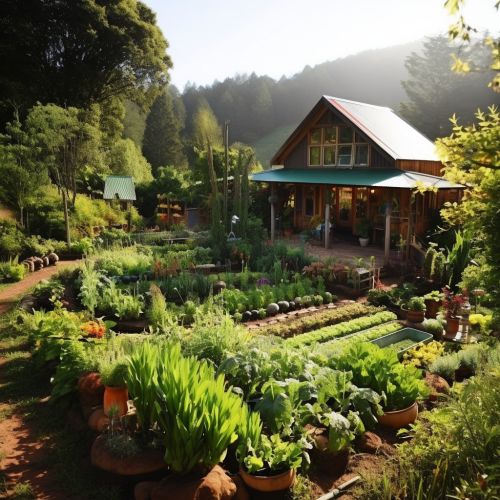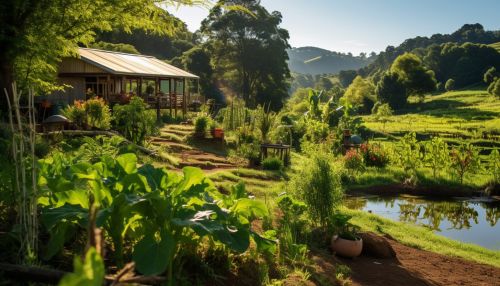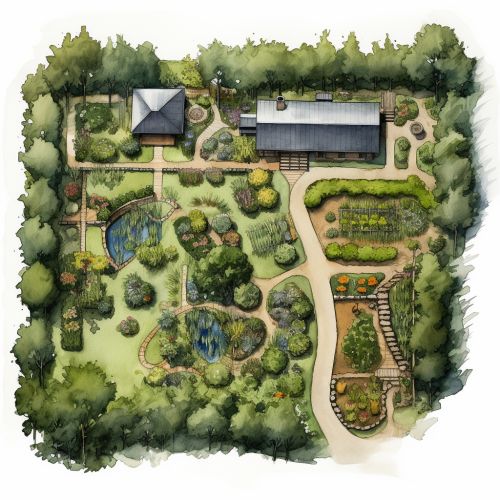Permaculture
Introduction
Permaculture is a system of agricultural and social design principles centered around simulating or directly utilizing the patterns and features observed in natural ecosystems. The term permaculture was developed and coined by David Holmgren, then a graduate student at the Tasmanian College of Advanced Education's Department of Environmental Design, and Bill Mollison, senior lecturer in Environmental Psychology at University of Tasmania, in 1978.


Principles of Permaculture
Permaculture principles are derived from the philosophy of working with, rather than against, nature; of protracted and thoughtful observation rather than protracted and thoughtless labor; and of looking at plants and animals in all their functions, rather than treating any area as a single-product system. These principles include:
- Care for the Earth: Provision for all life systems to continue and multiply.
- Care for People: Provision for people to access those resources necessary for their existence.
- Fair Share: By governing our own needs, we can set resources aside to further the above principles.
Design in Permaculture
Permaculture design emphasizes patterns of landscape, function, and species assemblies. It asks the question, "Where does this element go? How can it be placed for the maximum benefit of the system?" To answer this question, the central concept of permaculture is maximizing beneficial relationships and minimizing harmful ones.


Techniques and Practices
Permaculture techniques and practices include, but are not limited to:
- Agroforestry
- Animal Tractors
- Aquaponics
- Composting
- Forest Gardening
- Keyline Design
- Rainwater Harvesting
- Sheet Mulching
- Solar Energy
- Water Harvesting
Criticisms and Responses
While permaculture has been praised for its environmental and sustainability focus, it has also faced criticism. Critics argue that permaculture lacks empirical evidence of its efficacy, is overly reliant on anecdotal evidence, and is often associated with pseudoscientific beliefs. Proponents of permaculture respond that the practice is based on sound ecological principles, and that the lack of scientific studies is due to a lack of funding and interest in this area, rather than a lack of validity.
See Also
Agroecology Ecological Design Sustainable Agriculture
